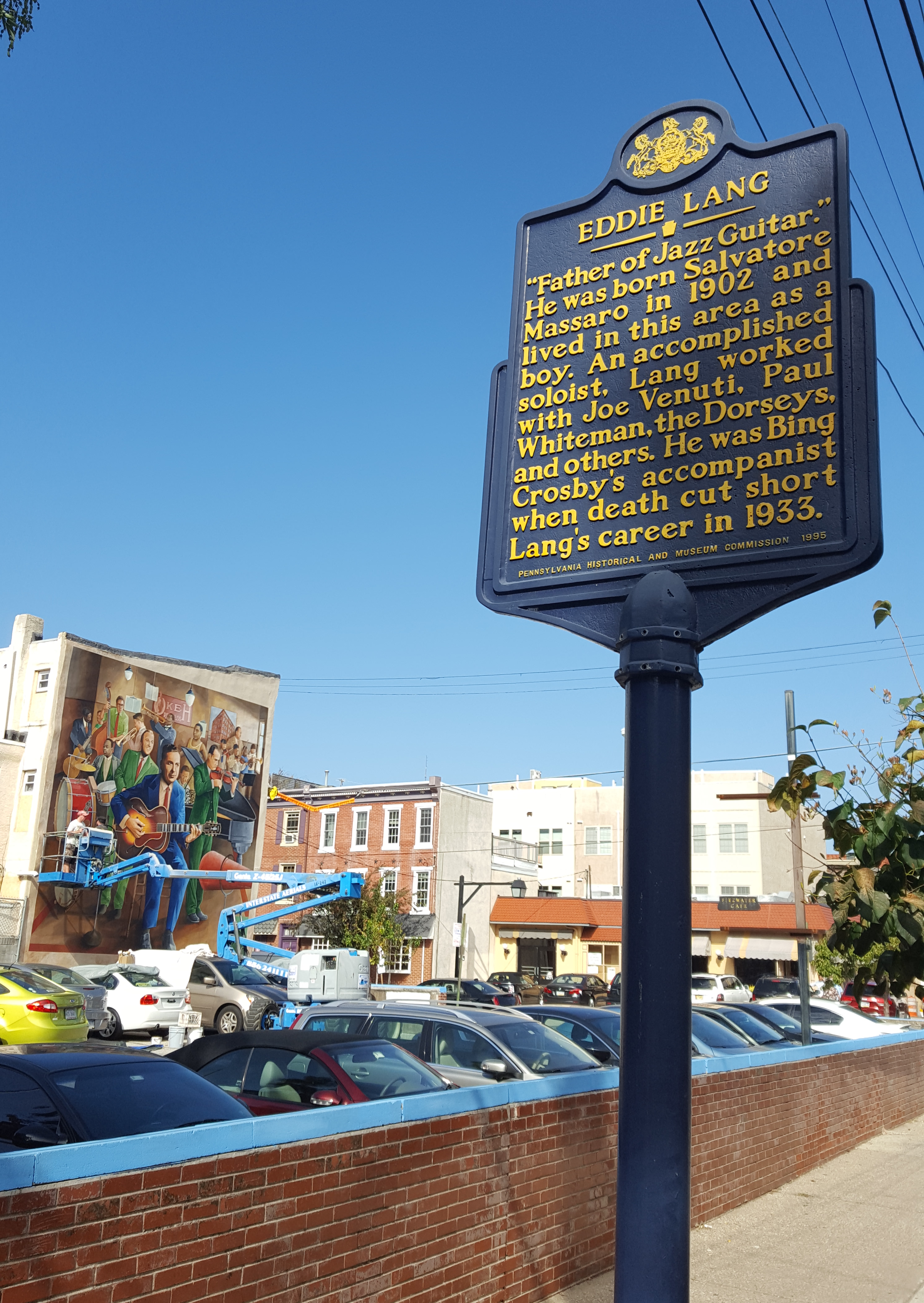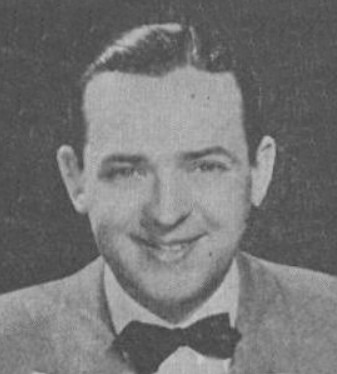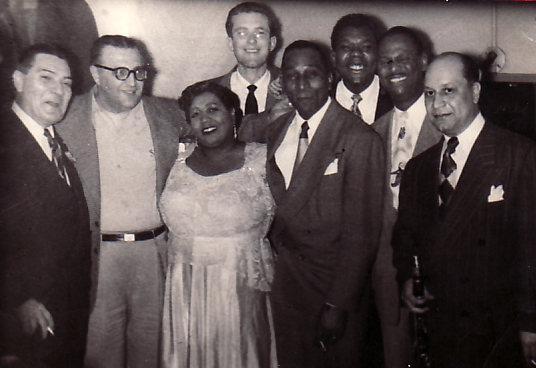|
Chick Bullock
Charles (Chick) Bullock (September 16, 18981900 U.S. Federal Census, Township #5, Silver Bow, Montana, enumeration district 90, page 5. Bullock's birth date is confirmed by his entries in the Social Security Death Index and the California Death Index. – September 15, 1981) was an American jazz and dance band vocalist, most active in the 1930s. He recorded some 500 tunes over the course of his career. Bullock was mostly associated with the ARC group of labels ( Melotone, Perfect, Banner, Oriole, Romeo). Many of his records were issued under the name "Chick Bullock and his Levee Loungers". Bullock belonged to select group of mostly freelance vocalists who sang the vocal refrains on hundreds of New York sessions, which included Smith Ballew, Scrappy Lambert, Irving Kaufman, Arthur Fields, and Dick Robertson. Some of these vocalists were also musicians, but their singing was more often featured. (All of the above had records also issued under their own name, and in case ... [...More Info...] [...Related Items...] OR: [Wikipedia] [Google] [Baidu] |
Encyclopedia Of Popular Music
''The Encyclopedia of Popular Music'' is an encyclopedia created in 1989 by Colin Larkin. It is the "modern man's" equivalent of the '' Grove Dictionary of Music'', which Larkin describes in less than flattering terms.''The Times'', ''The Knowledge'', Christmas edition, 22 December 2007- 4 January 2008. It was described by ''The Times'' as "the standard against which all others must be judged". History of the encyclopedia Larkin believed that rock music and popular music were at least as significant historically as classical music, and as such, should be given definitive treatment and properly documented. ''The Encyclopedia of Popular Music'' is the result. In 1989, Larkin sold his half of the publishing company Scorpion Books to finance his ambition to publish an encyclopedia of popular music. Aided by a team of initially 70 contributors, he set about compiling the data in a pre-internet age, "relying instead on information gleaned from music magazines, individual expertise ... [...More Info...] [...Related Items...] OR: [Wikipedia] [Google] [Baidu] |
Vaudeville
Vaudeville (; ) is a theatrical genre of variety entertainment born in France at the end of the 19th century. A vaudeville was originally a comedy without psychological or moral intentions, based on a comical situation: a dramatic composition or light poetry, interspersed with songs or ballets. It became popular in the United States and Canada from the early 1880s until the early 1930s, but the idea of vaudeville's theatre changed radically from its French antecedent. In some ways analogous to music hall from Victorian Britain, a typical North American vaudeville performance was made up of a series of separate, unrelated acts grouped together on a common bill. Types of acts have included popular and classical musicians, singers, dancers, comedians, trained animals, magicians, ventriloquists, strongmen, female and male impersonators, acrobats, clowns, illustrated songs, jugglers, one-act plays or scenes from plays, athletes, lecturing celebrities, minstrels, and movies. A ... [...More Info...] [...Related Items...] OR: [Wikipedia] [Google] [Baidu] |
American Federation Of Musicians
The American Federation of Musicians of the United States and Canada (AFM/AFofM) is a 501(c)(5) labor union representing professional instrumental musicians in the United States and Canada. The AFM, which has its headquarters in New York City, is led by president Raymond M. Hair Jr. Founded in Cincinnati in 1896 as the successor to the National League of Musicians, the AFM is the largest organization in the world to represent professional musicians. It negotiates fair agreements, protects ownership of recorded music, secures benefits such as healthcare and pension, and lobbies legislators. In the U.S., it is known as the American Federation of Musicians (AFM), and in Canada, it is known as the Canadian Federation of Musicians/Fédération Canadienne des Musiciens (CFM/FCM). The AFM is affiliated with AFL–CIO, the largest federation of unions in the United States and the Canadian Labour Congress, the federation of unions in Canada. Among the best known AFM actions was the 19 ... [...More Info...] [...Related Items...] OR: [Wikipedia] [Google] [Baidu] |
1942–44 Musicians' Strike
Year 194 ( CXCIV) was a common year starting on Tuesday (link will display the full calendar) of the Julian calendar. At the time, it was known as the Year of the Consulship of Septimius and Septimius (or, less frequently, year 947 ''Ab urbe condita''). The denomination 194 for this year has been used since the early medieval period, when the Anno Domini calendar era became the prevalent method in Europe for naming years. Events By place Roman Empire * Emperor Septimius Severus and Decimus Clodius Septimius Albinus Caesar become Roman Consuls. * Battle of Issus: Septimius Severus marches with his army (12 legions) to Cilicia, and defeats Pescennius Niger, Roman governor of Syria. Pescennius retreats to Antioch, and is executed by Severus' troops. * Septimius Severus besieges Byzantium (194–196); the city walls suffer extensive damage. Asia * Battle of Yan Province: Warlords Cao Cao and Lü Bu fight for control over Yan Province; the battle lasts for over 100 days ... [...More Info...] [...Related Items...] OR: [Wikipedia] [Google] [Baidu] |
Pseudonym
A pseudonym (; ) or alias () is a fictitious name that a person or group assumes for a particular purpose, which differs from their original or true name (orthonym). This also differs from a new name that entirely or legally replaces an individual's own. Many pseudonym holders use pseudonyms because they wish to remain anonymous, but anonymity is difficult to achieve and often fraught with legal issues. Scope Pseudonyms include stage names, user names, ring names, pen names, aliases, superhero or villain identities and code names, gamer identifications, and regnal names of emperors, popes, and other monarchs. In some cases, it may also include nicknames. Historically, they have sometimes taken the form of anagrams, Graecisms, and Latinisations. Pseudonyms should not be confused with new names that replace old ones and become the individual's full-time name. Pseudonyms are "part-time" names, used only in certain contexts – to provide a more clear-cut separation between o ... [...More Info...] [...Related Items...] OR: [Wikipedia] [Google] [Baidu] |
Eddie Lang
Eddie Lang (born Salvatore Massaro, October 25, 1902 – March 26, 1933) was an American musician who is credited as the father of jazz guitar. During the 1920s, he gave the guitar a prominence it previously lacked as a solo instrument, as part of a band or orchestra, and as accompaniment for vocalists. He recorded duets with guitarists Lonnie Johnson and Carl Kress and jazz violinist Joe Venuti, and played rhythm guitar in the Paul Whiteman Orchestra and was the favoured accompanist of Bing Crosby. Biography The son of an Italian-American instrument maker, Lang was born in Philadelphia, Pennsylvania, and grew up with violinist Joe Venuti. His first instrument was violin when he was seven. He performed on violin in 1917 and became a member of a trio. In 1920, he dropped the violin for banjo and worked with Charlie Kerr, then Bert Estlow, Vic D'Ippolito, and Billy Lustig's Scranton Siren Orchestra. A few years later, he dropped the banjo for guitar when he became a member ... [...More Info...] [...Related Items...] OR: [Wikipedia] [Google] [Baidu] |
Joe Venuti
Giuseppe "Joe" Venuti (September 16, 1903 – August 14, 1978) was an American jazz musician and pioneer jazz violinist. Considered the father of jazz violin, he pioneered the use of string instruments in jazz along with the guitarist Eddie Lang, a friend since childhood. Through the 1920s and early 1930s, Venuti and Lang made many recordings as leader and as featured soloists. He and Lang became so well known for their 'hot' violin and guitar solos that on many commercial dance recordings they were hired to do 12- or 24-bar duos towards the end of otherwise stock dance arrangements. In 1926, Venuti and Lang started recording for the OKeh label as a duet (after a solitary duet issued on Columbia), followed by "Blue Four" combinations, which are considered milestone jazz recordings. Venuti also recorded commercial dance records for OKeh under the name "New Yorkers". He worked with Benny Goodman, Adrian Rollini, the Dorsey Brothers, Bing Crosby, Bix Beiderbecke, Jack Teagard ... [...More Info...] [...Related Items...] OR: [Wikipedia] [Google] [Baidu] |
Jimmy Dorsey
James Francis Dorsey (February 29, 1904 – June 12, 1957) was an American jazz clarinetist, saxophonist, composer and big band leader. He recorded and composed the jazz and pop standards "I'm Glad There Is You (In This World of Ordinary People)" and " It's The Dreamer In Me". His other major recordings were "Tailspin", " John Silver", " So Many Times", " Amapola", "Brazil ( Aquarela do Brasil)", " Pennies from Heaven" with Bing Crosby, Louis Armstrong, and Frances Langford, "Grand Central Getaway", and "So Rare". He played clarinet on the seminal jazz standards "Singin' the Blues" in 1927 and the original 1930 recording of "Georgia on My Mind", which were inducted into the Grammy Hall of Fame. Early life Jimmy Dorsey was born in Shenandoah, Pennsylvania, United States, the first son of Theresa Langton Dorsey and Thomas Francis Dorsey. His father, Thomas, was initially a coal miner, but would later become a music teacher and marching-band director. Both Jimmy and his younger ... [...More Info...] [...Related Items...] OR: [Wikipedia] [Google] [Baidu] |
Tommy Dorsey
Thomas Francis Dorsey Jr. (November 19, 1905 – November 26, 1956) was an American jazz trombonist, composer, conductor and bandleader of the big band era. He was known as the "Sentimental Gentleman of Swing" because of his smooth-toned trombone playing. His theme song was "I'm Getting Sentimental Over You". His technical skill on the trombone gave him renown among other musicians. He was the younger brother of bandleader Jimmy Dorsey. After Dorsey broke with his brother in the mid-1930s, he led an extremely successful band from the late 1930s into the 1950s. He is best remembered for standards such as "Opus No. 1, Opus One", "Song of India (song), Song of India", "Marie", "On Treasure Island", and his biggest hit single, "I'll Never Smile Again". Early life Born in Mahanoy Plane, Pennsylvania, Thomas Francis Dorsey Jr. was the second of four children born to Thomas Francis Dorsey Sr., a bandleader, and Theresa (née Langton) Dorsey. He and Jimmy, his older brother by slightly ... [...More Info...] [...Related Items...] OR: [Wikipedia] [Google] [Baidu] |
Jack Teagarden
Weldon Leo "Jack" Teagarden (August 20, 1905 – January 15, 1964) was an American jazz trombonist and singer. According to critic Scott Yannow of Allmusic, Teagarden was the preeminent American jazz trombone player before the bebop era of the 1940s and "one of the best jazz singers too". Teagarden's early career was as a sideman with the likes of Paul Whiteman and lifelong friend Louis Armstrong. Early life Teagarden was born in Vernon, Texas, United States. His brothers Charlie and Clois "Cub" and his sister Norma also became professional musicians. His father was an amateur brass band trumpeter and started him on baritone horn; by age seven he had switched to trombone. His first public performances were in movie theaters, where he accompanied his mother, a pianist. , Encyclopedia of Jazz Mu ... [...More Info...] [...Related Items...] OR: [Wikipedia] [Google] [Baidu] |
Bill Coleman (trumpeter)
William Johnson Coleman (August 4, 1904 in Paris, Kentucky, United States – August 24, 1981 in Toulouse, France) was an American jazz trumpeter. Early life In 1909, Coleman's family moved from Kentucky to Cincinnati. His first musical explorations were on clarinet and C melody saxophone, but he eventually settled on trumpet. As a young man he worked as a messenger for the Western Union telegraph company. He studied with Cincinnati trumpeter Theodore Carpenter, and played in an amateur band led by trombonist J.C. Higginbotham. Career Coleman began professional work in Cincinnati with bands led by Clarence Paige and Wesley Helvey (both bands his teacher Carpenter worked in) then with Lloyd and Cecil Scott. In December 1927, he traveled with the Scott brothers to New York City, and continued to work with them until the late summer of 1929, when he joined the orchestra of pianist Luis Russell. His first recording session was with Russell on September 6, 1929, and he soloed on th ... [...More Info...] [...Related Items...] OR: [Wikipedia] [Google] [Baidu] |
Bunny Berigan
Roland Bernard "Bunny" Berigan (November 2, 1908 – June 2, 1942) was an American jazz trumpeter and bandleader who rose to fame during the swing era. His career and influence were shortened by alcoholism, and ended with his early demise at the age of 33 from cirrhosis. Although he composed some jazz instrumentals such as "Chicken and Waffles" and "Blues", Berigan was best known for his virtuoso jazz trumpeting. His 1937 classic recording "I Can't Get Started" was inducted into the Grammy Hall of Fame in 1975. Early life and career Berigan was born in Hilbert, Wisconsin, the son of William Patrick Berigan and Mary Catherine (Mayme) Schlitzberg, and raised in Fox Lake. Having learned the violin and trumpet, Berigan started his career playing with local bands as a teenager, including the University of Wisconsin's jazz ensemble (although he never actually went to college). After first trying out for the Hal Kemp Orchestra and being rejected he joined the band in late 1929. His fi ... [...More Info...] [...Related Items...] OR: [Wikipedia] [Google] [Baidu] |





